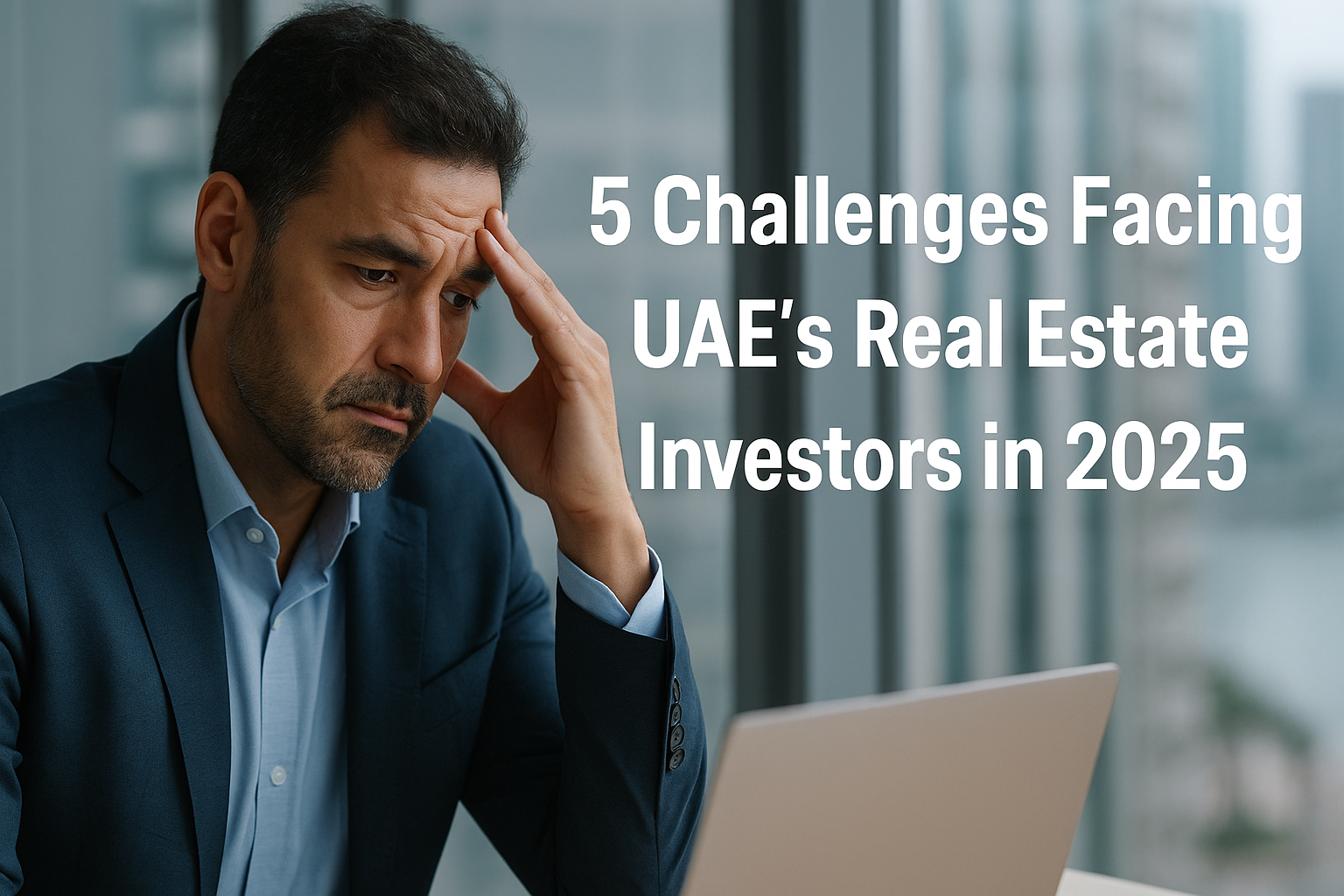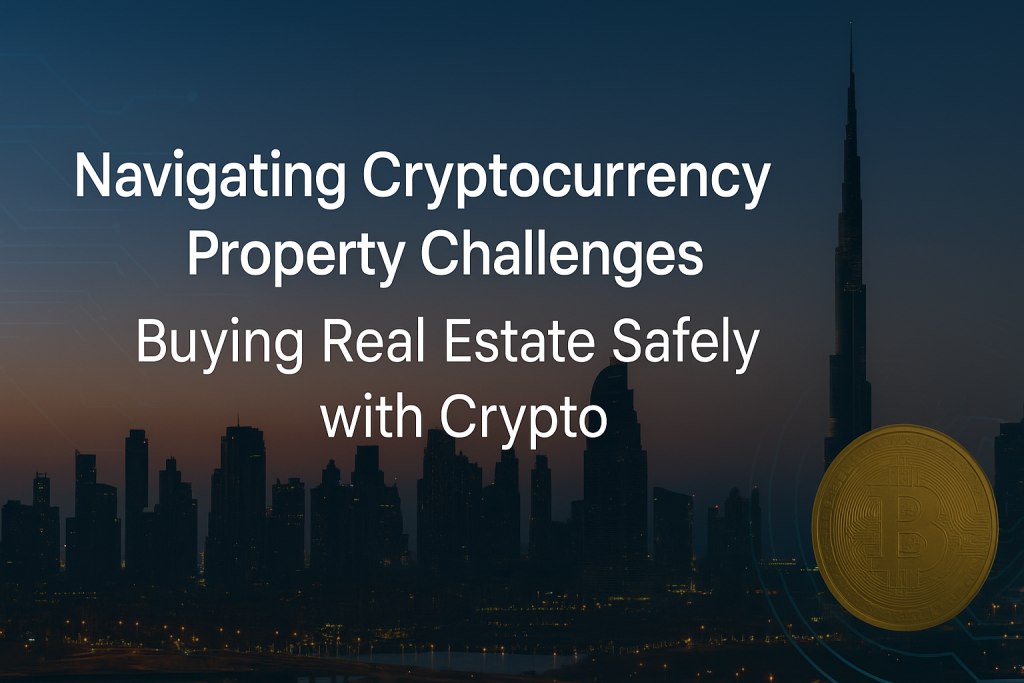

Introduction: Navigating Investor Challenges 2025 in the UAE
The UAE real estate market has been a magnet for global investors for over a decade. Fueled by strong economic fundamentals, government-backed initiatives, and a strategic location bridging East and West, the sector continues to evolve rapidly. However, 2025 is presenting a unique set of hurdles for both new and seasoned investors. The term Investor Challenges 2025 captures a broad spectrum of emerging risks, market shifts, and strategic blind spots that require immediate attention.
Rising long-term bond yields are creating big issues for real estate investors.
With the 10-year US treasury now rising past the Cap Rate, or net profit %, from a rental property.
This means US government bonds now have the same return as buying a house and renting it out.… pic.twitter.com/mWrhaT1E3V
— Nick Gerli (@nickgerli1) January 14, 2025
With Expo 2020’s momentum tapering and post-pandemic economic normalization underway, investors now face a different reality. Rising interest rates, regulatory updates, sustainability mandates, and oversupply in certain areas are reshaping the investment landscape. This article delves into the five most pressing challenges facing real estate investors in the UAE in 2025—and offers insights to help mitigate risk and maximize returns.

1. Regulatory Changes and Compliance Complexity
Adapting to a Tighter Legal Framework
One of the most notable Investor Challenges 2025 is the evolving regulatory landscape. Over the past few years, the UAE has introduced a range of real estate reforms aimed at improving transparency, attracting foreign investment, and tightening anti-money laundering (AML) measures. While these are positive developments in the long run, they also introduce compliance complexities for investors.
For example, in 2022, the UAE implemented enhanced Ultimate Beneficial Owner (UBO) disclosure rules. In 2024, new anti-speculation laws and stricter escrow account usage requirements were added for developers and investors alike. These shifts require property investors to reassess legal structures, documentation, and financing methods.
Key Takeaway:
Investors must work closely with legal advisors to ensure full compliance and avoid penalties, particularly when investing in off-plan properties, free zones, or under joint ventures.
Helpful Source: PwC Middle East Legal Regulatory Updates
2. Rising Financing Costs and Interest Rate Volatility
The Impact of Global Monetary Policy on UAE Investors
Despite the advantages of UAE’s real estate in a high-interest rate environment, one of the prominent investor challenges in 2025 is the increase in financing costs due to rising interest rates. The UAE dirham’s peg to the US dollar means that when the US Federal Reserve raises rates, local interest rates in the UAE also climb. This escalation in borrowing costs can dampen purchase affordability for end-users and increase the cost of capital for developers. LinkedIn
In the first quarter of 2025, over AED 15 billion worth of mortgages were issued in Dubai alone, indicating a significant momentum in real estate financing. However, the recent sharp rise in interest rates worldwide has made mortgages in the UAE more expensive, which could cool demand from mortgage-dependent buyers. LinkedIn
Strategies for Investors:

- Explore Sharia-compliant financing options, which may offer more flexible structures.
- Consider fractional ownership models to reduce traditional mortgage burdens.
- Stay informed about market trends and adjust investment strategies accordingly.
By acknowledging the current economic climate and adapting investment approaches, investors can navigate the challenges posed by rising financing costs in the UAE’s real estate market.
3. Oversupply in Certain Property Segments
Market Saturation Pressures Yield Potential
While the UAE continues to push ahead with ambitious residential and commercial development, not all areas are experiencing healthy demand-supply dynamics. Oversupply remains one of the classic Investor Challenges 2025, particularly in the affordable housing and office real estate sectors.
In Dubai alone, over 25,000 residential units are launched for sale in Q1 2025, according to CBRE Middle East. If demand growth does not match the pace of deliveries, investors may face lower rental yields, longer vacancy periods, and compressed capital appreciation.
Key Insight:
Focus on underserved segments such as branded residences, senior living, or eco-certified buildings, which offer stronger differentiation in a saturated landscape.
4. ESG Mandates and Sustainable Development Pressures
Sustainability Is No Longer Optional
The UAE has committed to achieving net-zero emissions by 2050 and real estate plays a critical role in that agenda. Developers and investors are now being pushed to incorporate sustainable design, energy efficiency, and green certifications such as LEED, Estidama, or WELL Building Standards into their assets.
These ESG mandates are among the main reasons that make UAE real estate appeals to ESG-focused investors. However, non-compliant properties are at risk of becoming “stranded assets” — assets that lose market relevance due to environmental or social shortcomings. This creates a two-tier market: ESG-compliant vs. obsolete.
What Investors Must Do:
- Assess green compliance before purchasing.
- Invest in retrofit-ready properties or those with renewable energy integrations.
5. Technological Disruption and PropTech Integration
Falling Behind in a Smart Investment Environment
The UAE real estate market is undergoing a technological transformation—from blockchain-based land registries to AI-driven property analytics. Investors who fail to embrace this wave risk lagging behind in due diligence, asset performance tracking, and tenant engagement.
The rise of PropTech solutions—virtual property tours, smart contracts, IoT-enabled energy monitoring—is not just a novelty; it is increasingly a market expectation.
Adapt or Lose Out:
- Use platforms offering data-driven investment analytics.
- Partner with PropTech platforms that enable fractional ownership, tokenization, or rental automation.
Future Outlook: What Lies Beyond 2025?
While 2025 brings unprecedented investor challenges, it also unlocks new opportunities. Dubai’s expanding digital economy, the rise of real estate tokenization, and planned mega-projects like Dubai Urban Tech District and NEOM-related spillovers in the northern emirates could redefine what makes a strategic property investment.
Smart investors will adopt a flexible, research-driven, and compliance-first approach. Those leveraging alternative finance models, staying ESG-compliant, and integrating PropTech will find a more resilient path forward—even in uncertain times.
Conclusion: Turning Investor Challenges 2025 into Strategic Advantages
The road ahead for UAE real estate investors is more complex than ever. Regulatory burdens, rising costs, sustainability pressures, and technology disruptions demand a new investment mindset. But challenges often precede innovation.
By recognizing these Investor Challenges 2025 early and adapting proactively, investors can protect their capital, uncover new niches, and lead the next wave of real estate transformation in the UAE.
📩 Explore Future-Ready Solutions with Homecubes
At Homecubes, we understand that navigating the UAE’s dynamic real estate market in 2025 requires more than traditional strategies. That’s why we are building a next-generation real estate tokenization platform—designed to empower investors with secure, fractional access to premium properties across the Emirates.
Please note: Homecubes is currently in the process of obtaining its VARA license and is not yet offering active investment services. We welcome your interest and invite you to stay connected as we prepare to launch fully compliant offerings.
👉 Reach out to our team to stay informed and be among the first to explore our smart real estate investment ecosystem.










